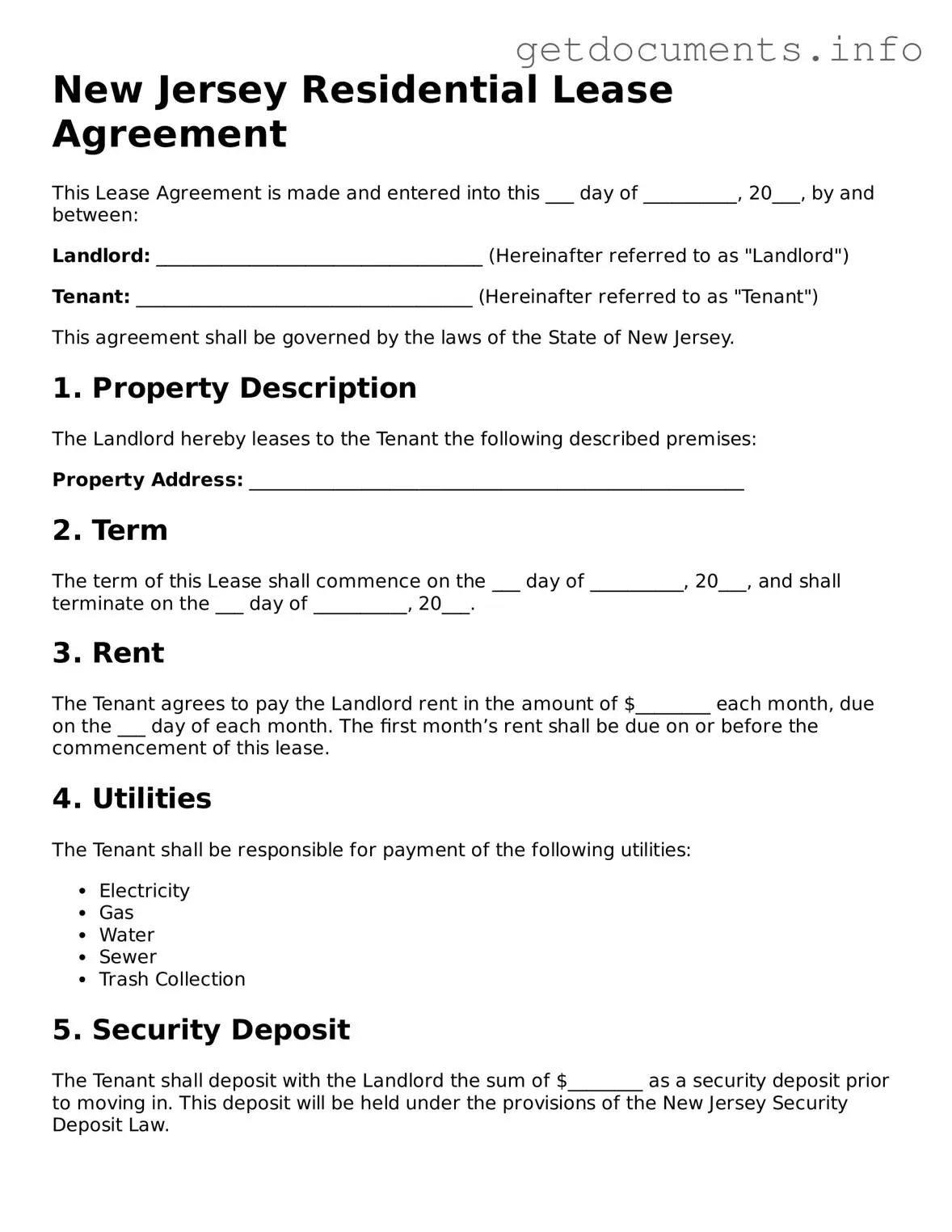Free Lease Agreement Template for New Jersey
A New Jersey Lease Agreement form is a legal document that outlines the terms and conditions under which a tenant agrees to rent property from a landlord. This form serves as a binding contract, detailing the rights and responsibilities of both parties throughout the rental period. Understanding this agreement is crucial for ensuring a smooth rental experience, so take the first step by filling out the form by clicking the button below.
Access Lease Agreement Editor

Free Lease Agreement Template for New Jersey
Access Lease Agreement Editor
Got places to be? Complete the form fast
Fill out Lease Agreement online and avoid printing or scanning.
Access Lease Agreement Editor
or
⇩ PDF File
